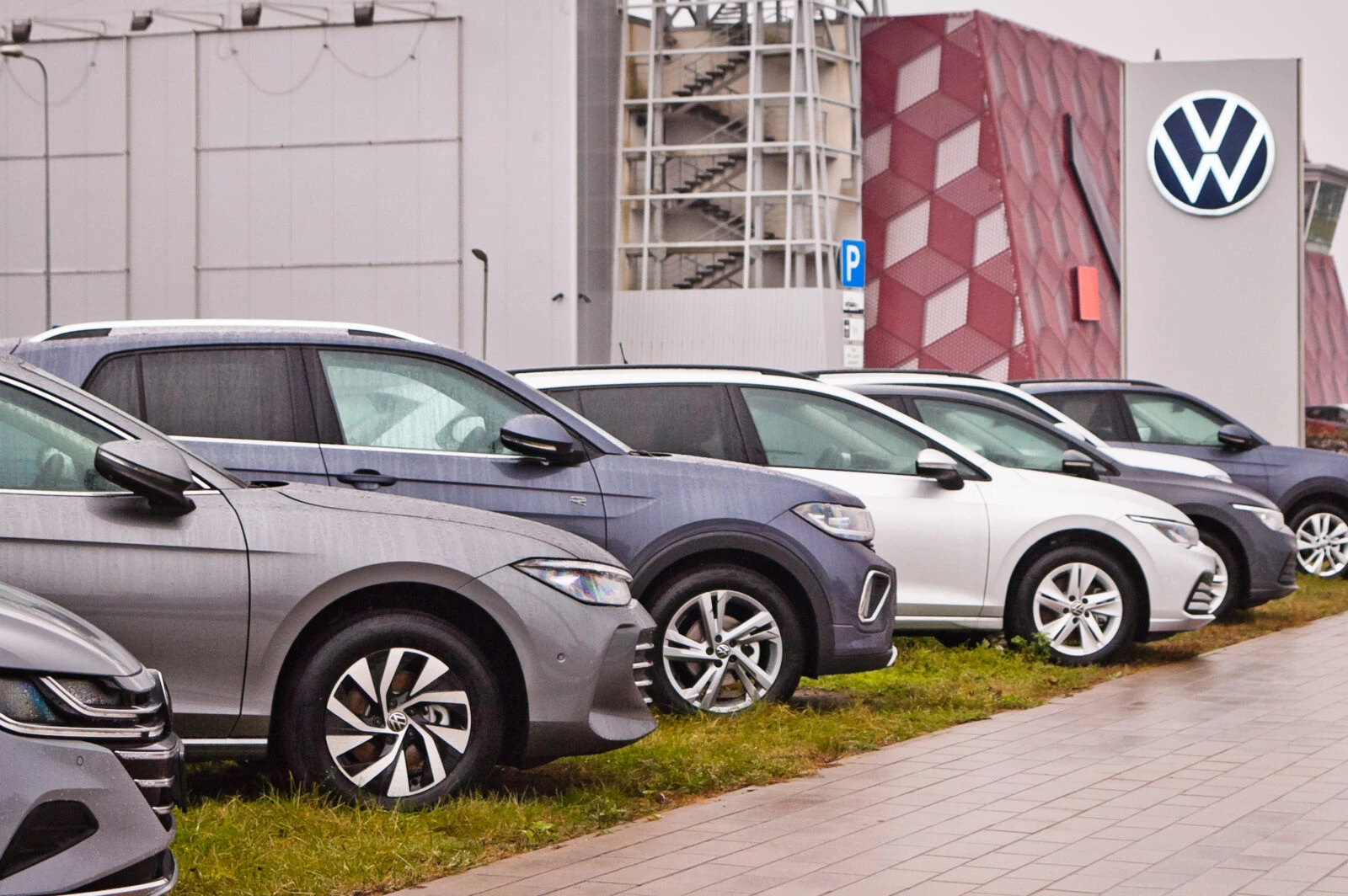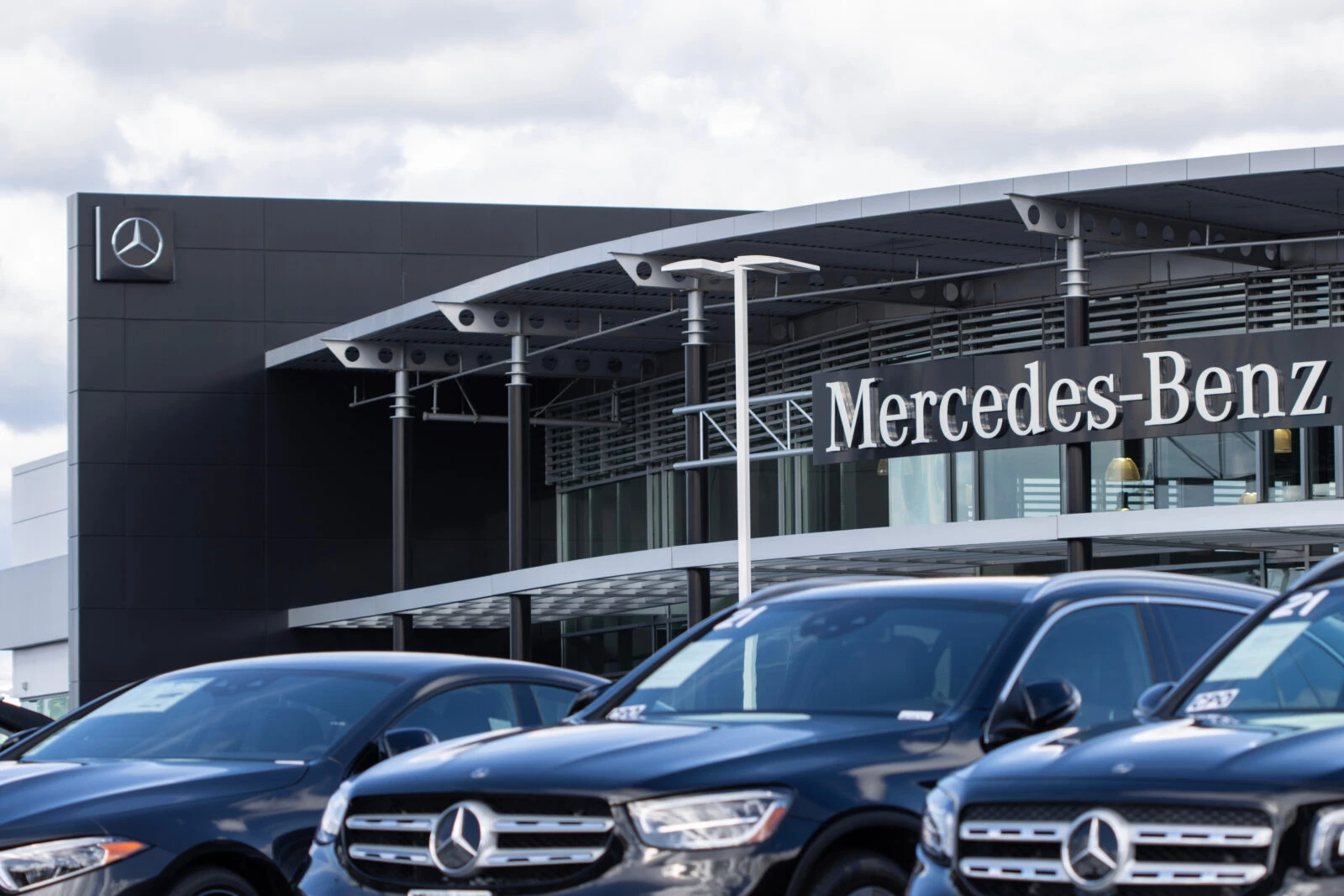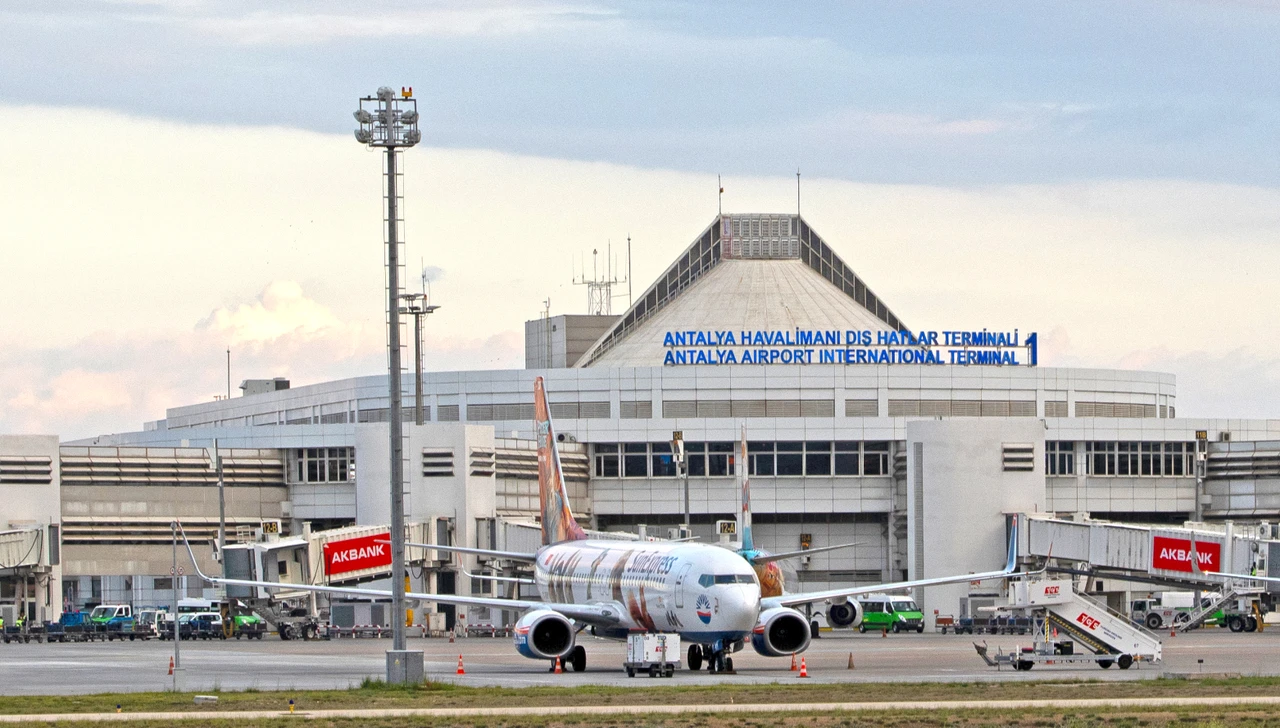Profits of German automakers Mercedes, Volkswagen slump amid weakening Chinese market
 Newly produced Volkswagen T-Cross vehicles await export at a seaport terminal in Cuxhaven, Germany, on October 28, 2019. (Adobe Stock Photo)
Newly produced Volkswagen T-Cross vehicles await export at a seaport terminal in Cuxhaven, Germany, on October 28, 2019. (Adobe Stock Photo)
German automakers Volkswagen and Mercedes-Benz reported steep declines in first-quarter profits for 2025, citing weakening demand in China, rising production costs, and overcapacity at European plants.
Volkswagen, which owns brands including Audi, Bugatti, Seat, Skoda, and Porsche, said its sales revenue rose 2.8% year-on-year to €77.56 billion ($88.16 billion), supported by stronger vehicle sales outside the Chinese market. However, operating profit fell to €2.87 billion, while net profit dropped 40.6% to €2.2 billion. Pre-tax profit also declined 40% to €3.1 billion.

Despite these challenges, Volkswagen’s vehicle deliveries edged up by 0.9% to 2.1 million units in the January–March period.
Mercedes-Benz also faced significant financial pressure in the first quarter. The company reported that its adjusted operating profit dropped 40.7% year-over-year to €2.3 billion, while net profit fell approximately 43% to €1.7 billion. Revenue declined 7.41% to €33.22 billion.

Global deliveries for Mercedes-Benz decreased 3.6% from the same quarter a year earlier, totaling 446,300 units.
US tariffs pose biggest looming threat to Mercedes
Volkswagen attributed the earnings decline to restructuring expenses, increased battery costs for electric vehicles, and declining sales in China, its largest market.
The challenges will arise in particular from an environment characterized by political uncertainty, increased trade restrictions and geopolitical tensions, raise competition, volatile commodity, energy and currency markets, and tighter requirements on emissions, VW said in a statement.
Mercedes-Benz highlighted that the potential full implementation of U.S. import tariffs on automobiles, and their continued enforcement through the end of the year, would negatively affect its operating profit, free cash flow, and sales revenue.
The company added that ongoing uncertainty over tariff policies, possible countermeasures, and their direct and indirect effects, particularly on customer behavior and demand, make it too difficult to reliably assess business performance for the remainder of the year.
“At this point in time, we are unable to estimate the following reporting figures for the rest of the year, which we normally forecast, in the usual level of detail and specificity,” Mercedes’s report said.



